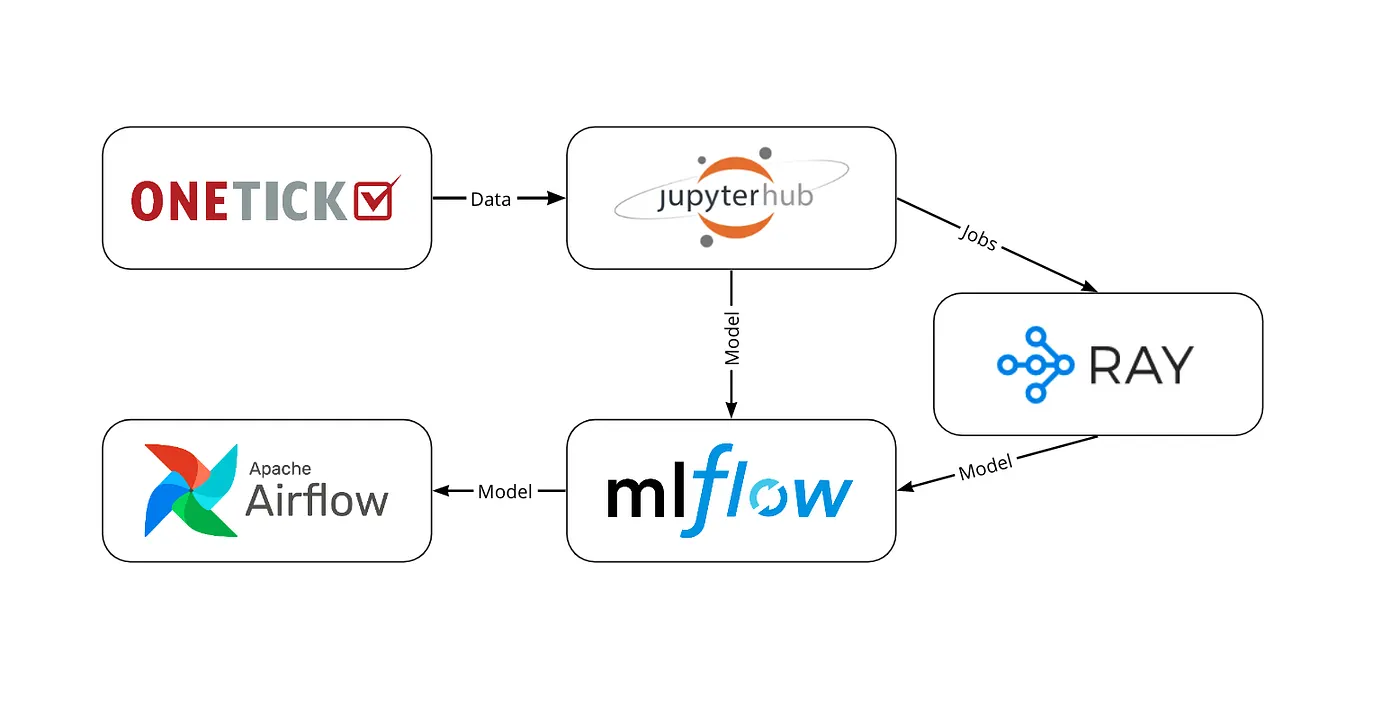By Mick Hittesdorf, OneTick Senior Cloud Architect
2025 marks the year financial institutions are making a serious, strategic commitment to building intelligent systems that can automate, amplify, and improve workflows. There is broad consensus amongst AI practitioners that AI outputs are only as good as the data inputs, and AI’s real value proposition is not replacing humans in the workforce but rather magnifying human expertise. In the best case, AI can make human beings exponentially more effective.
But how do we move from high-level strategy to delivering real-world business results with AI? The process begins with laying the foundational groundwork: adopting a Modern Data Platform (MDP) strategy with high-quality data at its core.
The Non-Negotiable Foundation: Data Quality and Modern Platforms
The often repeated catchphrase of "garbage in, garbage out" means that success in the AI era requires capital markets firms to invest in data quality and the modern data platform infrastructure that enables data quality first.
A modern data platform (MDP) distinguishes itself by addressing legacy pain points and supporting high-velocity AI use cases:
- Cloud-Native Architecture: The move toward cloud-first solutions allows firms to use the full elastic capabilities of storage and compute. For example, OneTick Cloud is a true SaaS model where developers can spin up analytics workflows in days, without infrastructure buildouts.
- Unification of Historical and Real-time data: A robust MDP must seamlessly handle both real-time and historical data through a single engine and a uniform data model, enabling consistent joins and analytics.
- Open Data Formats: As explored in "The Case for Open Data Formats: Parquet and Iceberg," the stampede towards open data formats is undeniable and inexorable. Apache Parquet provides the high-performance columnar storage necessary for read-intensive, analytics-heavy tasks. Furthermore, layers like Apache Iceberg provide transactional and metadata management capabilities on top of Parquet, adding crucial UPDATE/UPSERT functionality and avoiding vendor lock-in.
Crucially, data quality must be treated as a first-class citizen. At OneTick, we implement rigorous data ingestion processes, normalization, and systematic data quality assurance and test automation at multiple stages of the data ingestion lifecycle. This ensures two things: first, that data quality standards of timeliness, consistency, completeness, correctness, and validity are satisfied, and second, that OneTick customers can trust that the data they're consuming is suitable for development of complex and demanding AI/ML models.
AI for Internal Exponentiation: The New Engineering Knowledge Companion
In a previous blog post, we introduced OneTick’s AI-powered Coding Assistant for onetick-py, which leverages generative AI to translate natural language prompts into functional Python scripts, significantly accelerating the development process for quants and developers.
The challenge with vendor-specific Python libraries, such as onetick-py is that major LLM vendors do not always include them in their training datasets, leading such models to produce inaccurate or hallucinated code. The solution is to use Retrieval Augment Generation (RAG) to provide the missing context.
Our latest step in this direction is the Support Assistant — Engineering Knowledge Companion. This tool directly addresses challenges faced by every member of a OneTick project team, including project managers, administrators, and support staff.
The OneTick Support Assistant acts as a smart conversational helper that understands technical questions about Jira tickets, Git repos, and OneTick DB configuration specifics. It addresses the day-to-day challenges of relying on team members to answer every question or spending time searching dozens of Slack messages or old Jira tickets.
A Unified Front: Research, Surveillance, and Internal Support
The true power of a Market Data Platform is its ability to create efficiencies across the organization. The very same tick-data pipelines that power signal research can and should also drive market-abuse detection and compliance workflows.
By utilizing OneTick’s unified architecture and data model, firms can leverage one copy of data, one governance model, and one analytics engine to:
- Run high-performance research queries.
- Generate automated Transaction Cost Analysis (TCA) and best-execution reports.
- Trigger real-time surveillance alerts for misconduct like Spoofing and Layering, often enhanced by self-tuning AI/ML models to reduce false positives.
Now, with our evolving suite of AI assistants, we are extending this efficiency to the development and support teams. By using tools like the Coding Assistant and the Support Assistant, developers are freed from managing "plumbing" and navigating scattered documentation. Instead, they focus their expertise on innovation, alpha generation, and ensuring the continued accuracy of the platform, driving tighter integration between compliance and strategy teams.
The path to enterprise-grade AI is not a single project, but a series of progressive strategic investments: establishing the modern data platform foundation, adopting open data formats like Iceberg and Parquet, and implementing specialized AI tools that make every role, from the quant researcher to the systems engineer, exponentially more productive.
Want to learn more?
If you’re building systems that need rock-solid market data infrastructure to power your AI initiatives, request a demo today.
— Mick Hittesdorf, OneTick Senior Cloud Architect




